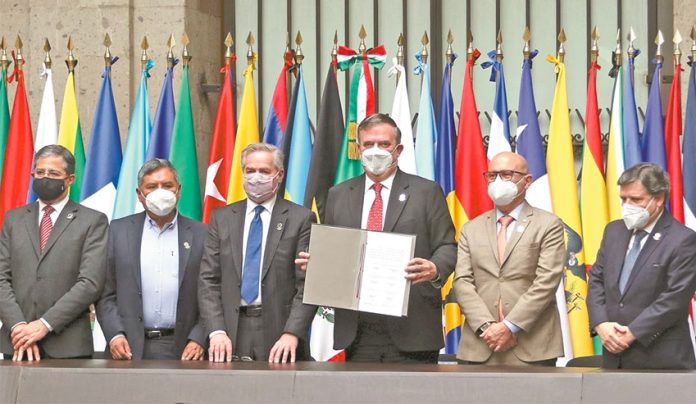Six Latin American nations have agreed to form a new regional space agency, the foreign minister announced on Saturday.
Mexico joined Bolivia, Argentina, Ecuador, Paraguay and Costa Rica in the commitment, which has been in the offing for a decade, at a meeting of the 32 country members of the Community of Latin American and Caribbean States (Celac).
The plan was first announced in January 2020 when Mexico took over the rotating presidency of the organization, which was created in 2010 in Caracas, Venezuela, as a counterbalance to the Organization of American States (OAS), which is headquartered in Washington, DC.
“Now we are going to [work on space projects] in combination and the [shared] resources will multiply by 20 times … It means multiplying by 20 the technological and scientific potential and power of America and the Caribbean,” Foreign Minister Marcelo Ebrard said.
His Bolivian counterpart, Rogelio Mata, also voiced his optimism about the project. “It’s a fantastic way to not remain behind in knowledge development,” he said.
The Associated Press reported that satellite technology, international partnerships, national pride and local development are all potential benefits of space programs in less developed nations, while critics view them as vanity projects and a diversion from pressing problems on the ground.
Prospects of global internet access from satellites, offering access to data to guide crop-growing and natural disaster management, and to track other conditions linked to disease were further factors named by AP.
Costa Rica-born NASA astronaut Franklin Chang Díaz said criticism of space programs were par for the course. “A lot of people criticized the creation of NASA in 1958 when the United States was struggling with the worst economic recession of the postwar era,” he said in a March statement.
Representatives at the meeting also reached consensus on the necessity for collaboration to distribute Covid-19 vaccines. The meeting was attended by 24 foreign ministers, three deputy ministers and five special envoys.
Authorities are likely to present a concrete plan at the sixth meeting of the Celac Congress in Mexico City on September 18.
With reports from El Universal and Periódico Viaje
